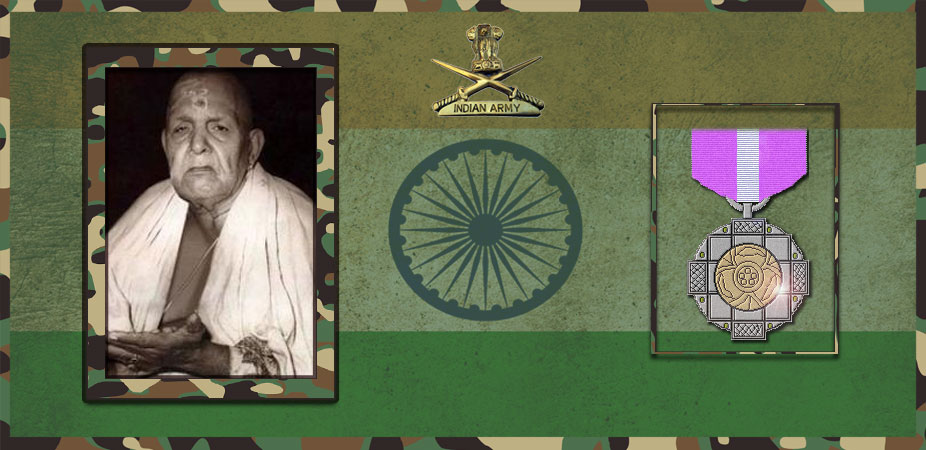Let's salute to our Indian Army together, We are proud to be Indian.
Let's salute to our Indian Army together, We are proud to be Indian.

Chembai Vaidyanatha Bhagavatar a.k.a. Vaidyanatha Iyer (Malayalam:ചെമ്പൈ വൈദ്യനാഥ ഭാഗവതർ, b. 1 September 1896, d. 16 October 1974) was a Carnatic music singer from Palakkad (state of Kerala, India). Known by his village name Chembai, or simply as Bhagavatar, he was born to Anantha Bhagavatar and Parvati Ammal in 1896, into a Tamil Brahmin family at Kottayi-I/II near Palakkad on Janmashtami day. Chembai was noted for his powerful voice and majestic style of singing. His first public performance was in 1904, when he was nine. A recipient of several titles and honours, he was known for his encouragement of upcoming musicians and ability to spot new talent. He was responsible for popularising compositions like Rakshamam and Pavana Guru, among others.
The music critic ‘Aeolus’ described him as “the musician who has meant the most to Carnatic Music in the first fifty years of the 20th century.”His prominent disciples include Chembai Narayana Bhagavathar, Mangu Thampuran, Guruvayur Ponnammal, T. V. Gopalakrishnan, V. V. Subramaniam, P. Leela, Jayan and Vijayan, K. J. Yesudas and Babu Parameswaran, among others.He also mentored and lot of young accompanists, including Palghat Mani Iyer, Lalgudi Jayaraman, M. S. Gopalakrishnan, T. N. Krishnan, Palani Subramaniam Pillai and L. Subramaniam. Memorial music festivals have been held in his honour annually since his death in 1974, the most important being the annually celebrated Chembai Sangeetholsavam.
The family’s connection with classical music spans five centuries. Vaidyanatha Bhagavatar’s father, Anantha Bhagavatar, was a violinist and singer from Chembai, near Palakkad, to whom a local Maharaja awarded the title “Ghana Chakratanam”, indicating his mastery of a special style of singing tanam.At age 3, Chembai began to learn Carnatic music from his father in the customary guru-sishya tradition, and also received violin and flute training in 1912.sembai is also one of 12 names of Sirkazhi, the birthplace of saint Gnanasambandar 7th century .c.e in TN.
Chembai died on 16 October 1974, aged 78, of a cardiac arrest. Shortly before that, he performed his last concert at a Poozhikkunnu Sreekrishna temple in Ottapalam (the venue of his first concert), and concluded the concert with his favourite song “Karunai Cheivan Endu Thamasam Krishna” (Why is there so much delay in conferring your mercy, Krishna?). He was talking to his disciple Olappamanna Vasudevan Namboothiripad when he suddenly collapsed and died. His nephew said he had always spoken about an easy death, and had attained it. He was cremated in his birth village. The Govt. Musical College in Palakkad was renamed as ‘Chembai Memorial Govt’ Musical College’ in his memory.
Chembai received several awards and titles during his career, most notably including: